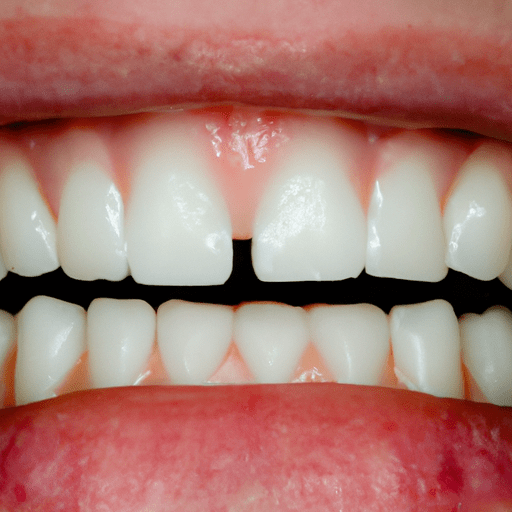Have you ever experienced a restless night filled with terrifying dreams that leave you feeling exhausted and anxious during the day? If so, you may be familiar with the debilitating effects of nightmares. However, did you know that sleep apnea, a common sleep disorder characterized by interrupted breathing, could be closely linked to the frequency and intensity of these distressing dreams? In this article, we will explore the connection between sleep apnea and nightmares, shedding light on how understanding this relationship can help individuals suffering from both conditions find relief and achieve a more peaceful night’s sleep.

Understanding Sleep Apnea
Sleep apnea is a sleep disorder characterized by pauses in breathing or shallow breaths during sleep. These interruptions can last for a few seconds to a few minutes and can occur multiple times throughout the night. There are three types of sleep apnea: obstructive sleep apnea (OSA), central sleep apnea (CSA), and complex sleep apnea syndrome (CSAS).
Obstructive sleep apnea is the most common type and is caused by a blockage in the airway, usually when the soft tissue in the back of the throat collapses during sleep. Central sleep apnea, on the other hand, is a result of the brain not sending proper signals to the muscles that control breathing. Complex sleep apnea syndrome is a combination of both obstructive and central sleep apnea.
Causes of Sleep Apnea
There are several factors that can contribute to the development of sleep apnea. For obstructive sleep apnea, obesity, excess weight around the neck, and narrow airways are common causes. Other factors such as family history, smoking, alcohol and sedative use, and age can also increase the risk. Central sleep apnea, on the other hand, is often associated with underlying medical conditions such as heart failure, stroke, or medication use.
Symptoms and Diagnosis
The most common symptoms of sleep apnea include loud snoring, gasping for air during sleep, morning headaches, dry mouth or sore throat, daytime sleepiness, irritability, and difficulty concentrating. If you suspect that you may have sleep apnea, it is important to consult with a healthcare professional. They may recommend a sleep study, which can be done either in a sleep lab or with an at-home sleep apnea testing device, to assess your sleep patterns and diagnose any underlying sleep disorders.
Relationship Between Sleep Apnea and Nightmares
While nightmares are typically associated with other sleep disorders such as sleep terrors or post-traumatic stress disorder (PTSD), there is evidence to suggest that sleep apnea can also contribute to the occurrence of nightmares. Research has shown a correlation between sleep apnea and an increased frequency and intensity of nightmares in affected individuals.
Mechanisms Leading to Nightmares in Sleep Apnea Patients
Several mechanisms have been proposed to explain the relationship between sleep apnea and nightmares. One theory is that the disruption in breathing during sleep triggers a fight-or-flight response in the body, leading to increased anxiety and the occurrence of nightmares. Another possible mechanism is the presence of hypoxia (lack of oxygen) during sleep apnea events, which can affect brain function and contribute to the development of nightmares.
Frequency and Intensity of Nightmares in Sleep Apnea
Studies have shown that sleep apnea patients are more likely to experience nightmares compared to individuals without the disorder. The frequency and intensity of nightmares can vary among sleep apnea patients, with some experiencing occasional unsettling dreams while others may have more frequent and intense nightmares that disrupt their sleep quality and overall well-being.
Emotional and Psychological Effects of Nightmares on Sleep Apnea Patients
Nightmares can have a significant impact on the emotional and psychological well-being of sleep apnea patients. The vivid and disturbing nature of nightmares can lead to feelings of fear, anxiety, and emotional distress. Additionally, frequent nightmares can disrupt sleep patterns, leading to sleep deprivation and daytime fatigue, further exacerbating the emotional and psychological effects.
Disrupted Sleep Architecture
Sleep apnea can disrupt the normal sleep architecture, which refers to the different stages of sleep experienced throughout the night. During a typical sleep cycle, individuals transition between non-rapid eye movement (NREM) sleep and rapid eye movement (REM) sleep. NREM sleep is further divided into three stages, with REM sleep occurring after NREM Stage 3. Sleep apnea can cause frequent awakenings and disruptions in these sleep stages, leading to an overall fragmented sleep pattern.
Fragmented Sleep Patterns
In individuals with sleep apnea, the pauses in breathing and subsequent gasping for air can lead to frequent awakenings throughout the night. These awakenings disrupt the natural progression of sleep stages and result in fragmented sleep patterns. As a result, sleep apnea patients may experience a reduced amount of deep, restorative sleep, leading to excessive daytime sleepiness and fatigue.
Reduced REM Sleep
REM sleep is an important stage of sleep that is associated with the processing of emotions, memory consolidation, and overall cognitive functioning. In individuals with sleep apnea, the disruptions in breathing and frequent awakenings can lead to a reduction in REM sleep. This can have a negative impact on cognitive performance, mood regulation, and emotional well-being.
Sleep Deprivation and Sleep Debt
The interruptions in breathing and fragmented sleep patterns caused by sleep apnea can result in sleep deprivation. Sleep deprivation occurs when an individual consistently fails to obtain enough sleep to meet their body’s needs. This accumulated sleep debt can contribute to a range of negative effects, including difficulties with attention, concentration, memory, and overall cognitive functioning.
Impaired Cognitive Functioning
Sleep apnea can significantly impact cognitive functioning and performance. The disruptions in sleep caused by sleep apnea can lead to difficulties with concentration, focus, attention, and memory. Additionally, sleep apnea has been associated with decreased cognitive processing speed, executive function deficits, and impaired decision-making abilities.
Prevalence of Nightmares in Sleep Apnea Patients
Nightmares are a common occurrence in sleep apnea patients, with studies suggesting a higher prevalence compared to individuals without the disorder. The exact prevalence of nightmares in sleep apnea patients can vary and may depend on factors such as the severity of sleep apnea, the presence of other sleep disorders, and individual characteristics.
Nightmare Themes and Content
Nightmares in sleep apnea patients can vary in terms of themes and content. Common nightmare themes include suffocation, drowning, being chased or attacked, and experiencing life-threatening situations. These themes may reflect the underlying fears and anxieties associated with sleep apnea and the interruptions in breathing during sleep.
Nightmares as Sleep Apnea Symptoms
Nightmares can sometimes be a symptom of sleep apnea itself. The presence of frequent and intense nightmares may indicate a higher severity of sleep apnea or the presence of other sleep-related disorders. It is important for individuals with sleep apnea experiencing nightmares to consult with a healthcare professional to assess their condition and ensure proper management and treatment.
Impact of Nightmares on Quality of Life
Nightmares associated with sleep apnea can significantly impact an individual’s quality of life. The distressing and vivid nature of nightmares can lead to disrupted sleep, increased anxiety, and emotional distress. As a result, individuals may experience difficulties with daytime functioning, including fatigue, poor concentration, irritability, and decreased overall well-being.
Hypoxia and Oxygen Desaturation
One potential factor contributing to nightmares in sleep apnea is the presence of hypoxia, which refers to a lack of oxygen in the body. Sleep apnea events can lead to episodes of oxygen desaturation, where the oxygen levels in the blood drop below normal levels. The presence of hypoxia and oxygen desaturation during sleep apnea events can affect brain function and contribute to the occurrence of nightmares.
Hyperarousal and Increased Anxiety
The disruptions in breathing and the body’s fight-or-flight response during sleep apnea events can lead to increased arousal and anxiety. This hyperarousal can carry over into sleep and contribute to the development of nightmares. The increased anxiety associated with sleep apnea can also exacerbate the emotional and psychological impact of nightmares.

Sleep Fragmentation and Disordered Breathing
Sleep apnea is characterized by frequent awakenings and interruptions in breathing during sleep. These disruptions can lead to sleep fragmentation, where the normal progression of sleep stages is interrupted. The disordered breathing and sleep fragmentation associated with sleep apnea can contribute to the occurrence of nightmares.
Nighttime Symptoms of Sleep Apnea
Sleep apnea symptoms that occur during the night, such as loud snoring, gasping for air, and restless sleep, can also increase the likelihood of experiencing nightmares. The disruptive nature of these symptoms can lead to increased anxiety and emotional distress, which may manifest in the form of nightmares during sleep.
Psychological Factors
Psychological factors such as stress, anxiety, and depression can also contribute to the occurrence of nightmares in sleep apnea patients. The challenges and difficulties associated with sleep apnea, including disrupted sleep, daytime fatigue, and impaired cognitive functioning, can contribute to psychological distress and increase the likelihood of experiencing nightmares.
Continuous Positive Airway Pressure (CPAP) Therapy
Continuous positive airway pressure (CPAP) therapy is one of the most common and effective treatments for sleep apnea. It involves wearing a mask that delivers a constant flow of air pressure to keep the airway open during sleep. CPAP therapy can reduce or eliminate the symptoms of sleep apnea, including the occurrence of nightmares.
Oral Appliances and Dental Devices
Oral appliances and dental devices can also be used to treat sleep apnea, especially in cases of mild to moderate obstructive sleep apnea. These devices work by repositioning the jaw or tongue to keep the airway open during sleep. By improving the airflow and reducing sleep apnea events, oral appliances and dental devices can help alleviate nightmares associated with sleep apnea.
Lifestyle Changes and Sleep Hygiene Practices
Making certain lifestyle changes and practicing good sleep hygiene can also improve sleep quality and reduce the occurrence of nightmares in sleep apnea patients. These changes may include maintaining a regular sleep schedule, creating a relaxing sleep environment, avoiding stimulants and heavy meals before bedtime, and practicing stress reduction techniques such as meditation or relaxation exercises.
Cognitive Behavioral Therapy for Insomnia (CBT-I)
Cognitive Behavioral Therapy for Insomnia (CBT-I) is a therapeutic approach that focuses on addressing the thoughts, behaviors, and environmental factors that contribute to insomnia and poor sleep quality. CBT-I can be beneficial for sleep apnea patients experiencing nightmares by helping them identify and modify negative thought patterns and behaviors that may be contributing to the occurrence of nightmares.
Medications and Supplemental Treatments
In some cases, medications or supplemental treatments may be prescribed by a healthcare professional to manage sleep apnea and associated nightmares. Medications such as antidepressants or anti-anxiety medications may be used to decrease anxiety and improve sleep quality. However, it is important to note that medication should always be prescribed and monitored by a healthcare professional.
Maintaining a Consistent Sleep Schedule
Maintaining a consistent sleep schedule can help regulate the body’s internal clock and improve sleep quality. Going to bed and waking up at the same time every day, even on weekends, can promote healthy sleep patterns and reduce the occurrence of nightmares.

Creating a Relaxing Sleep Environment
Creating a calm and relaxing sleep environment can contribute to better sleep quality and reduce the likelihood of experiencing nightmares. This can include keeping the bedroom cool, dark, and quiet, using comfortable bedding and pillows, and removing electronic devices that emit blue light before bedtime.
Avoiding Triggers and Stimulants Before Bed
Avoiding triggers and stimulants before bed can help promote better sleep quality and reduce the occurrence of nightmares. It is advisable to avoid consuming caffeine, nicotine, and alcohol close to bedtime, as these substances can interfere with sleep and contribute to the likelihood of experiencing nightmares.
Promoting Proper Sleep Posture and Sleeping Positions
Maintaining proper sleep posture and sleeping positions can help alleviate sleep apnea symptoms and reduce the occurrence of nightmares. Sleeping on your side rather than your back can help keep the airway open and minimize interruptions in breathing during sleep.
Stress Reduction Techniques
Stress and anxiety can contribute to the occurrence of nightmares in sleep apnea patients. Engaging in stress reduction techniques such as meditation, deep breathing exercises, or mindfulness practices can help reduce anxiety and promote better sleep quality. These techniques can also have a positive impact on overall well-being and emotional health.
Consulting a Sleep Specialist or Pulmonologist
When it comes to managing sleep apnea and associated nightmares, it is important to consult with a sleep specialist or pulmonologist. These healthcare professionals have expertise in sleep disorders and can provide an accurate diagnosis, recommend appropriate treatment options, and monitor progress over time.
Importance of Accurate Diagnosis and Treatment
Accurate diagnosis and treatment of sleep apnea are crucial for managing the condition and reducing the occurrence of nightmares. Proper management of sleep apnea can improve sleep quality, alleviate symptoms, and enhance overall well-being. Seeking timely diagnosis and treatment is vital to effectively address sleep apnea-related nightmares.
Joining Support Groups and Online Communities
Joining support groups and online communities can provide valuable resources and support for individuals with sleep apnea and nightmares. Connecting with others who share similar experiences can offer emotional support, practical advice, and an opportunity to share strategies for managing sleep apnea and associated nightmares.
Sharing Experiences and Strategies with Others
Sharing experiences and strategies with others who have sleep apnea and nightmares can be beneficial in navigating the challenges associated with the condition. Hearing firsthand accounts and learning from others’ experiences can provide insights and potentially reveal new approaches to managing sleep apnea and reducing nightmares.
Polysomnography and Home Sleep Apnea Testing
Polysomnography and home sleep apnea testing are diagnostic tools used to assess sleep-related disorders, including sleep apnea. Polysomnography involves spending a night in a sleep lab while various physiological parameters are monitored. Home sleep apnea testing, on the other hand, allows individuals to undergo sleep testing in the comfort of their own home using portable monitoring devices.
Measuring Apnea-Hypopnea Index (AHI) and Sleep Stages
During sleep studies, the apnea-hypopnea index (AHI) is measured to determine the severity of sleep apnea. The AHI measures the number of apneas and hypopneas (partial obstructions) that occur per hour of sleep. In addition, sleep stages are monitored to assess the distribution and quality of sleep throughout the night.
Identifying Respiratory Events and Sleep Disruptions
Sleep studies help identify respiratory events, such as apneas and hypopneas, that occur during sleep. These events are recorded and analyzed to determine the presence and severity of sleep apnea. Sleep studies also allow for the identification of other sleep disturbances or disorders that may be contributing to the occurrence of nightmares.
Recording Sleep Data and Analyzing Patterns
Sleep studies provide valuable data on sleep patterns, respiratory events, and other physiological parameters during sleep. This data is recorded and analyzed by healthcare professionals to assess sleep quality, identify sleep disorders, and develop individualized treatment plans. Analyzing sleep patterns and patterns of respiratory events can help determine the impact of sleep apnea on the occurrence of nightmares.
Benefits and Limitations of Sleep Studies
Sleep studies offer numerous benefits in diagnosing sleep apnea and assessing its impact on nightmares. They provide objective data on sleep quality and respiratory events that can guide treatment decisions. However, sleep studies may have certain limitations, such as the potential for night-to-night variability in sleep patterns and the need for individuals to sleep in an unfamiliar environment during laboratory-based studies.
Exploring the Mechanisms of Sleep Apnea and Nightmares
Future research is focused on understanding the underlying mechanisms that connect sleep apnea and nightmares. This includes exploring the role of hypoxia, hyperarousal, and other physiological factors in the occurrence of nightmares in sleep apnea patients. By gaining a deeper understanding of these mechanisms, targeted therapies can be developed to address nightmares associated with sleep apnea.
Developing Targeted Therapies for Sleep Apnea and Nightmares
Advances in research may lead to the development of targeted therapies specifically designed to address sleep apnea and associated nightmares. By identifying the specific pathways and mechanisms that contribute to the occurrence of nightmares, researchers can develop innovative treatments to alleviate nightmares and improve overall sleep quality in sleep apnea patients.
Improving Diagnostic Tools and Sleep Monitoring Technology
Continuous improvement in diagnostic tools and sleep monitoring technology can enhance the accuracy and accessibility of diagnosing sleep apnea and assessing its impact on nightmares. This includes the development of portable and user-friendly sleep apnea testing devices that can be used at home, as well as advancements in sleep monitoring technology to capture more detailed and comprehensive sleep data.
Enhancing Awareness and Education about Sleep Disorders
Creating awareness and promoting education about sleep disorders, including sleep apnea and nightmares, is crucial in improving diagnosis rates and ensuring individuals have access to appropriate treatment options. By increasing public knowledge and understanding of sleep disorders, individuals can make informed decisions about their sleep health and seek help when needed.
In conclusion, sleep apnea can have a significant impact on nightmares and overall sleep quality. The relationship between sleep apnea and nightmares is complex, with various mechanisms and factors contributing to their occurrence. Managing sleep apnea and reducing nightmares involves a combination of treatment options, lifestyle changes, and supportive resources. Seeking professional help, understanding the role of sleep studies, and staying informed about advances in sleep disorder research are essential in effectively addressing sleep apnea and its impact on nightmares.







